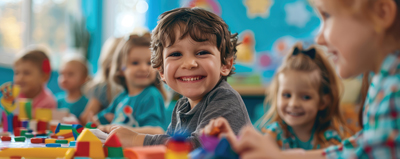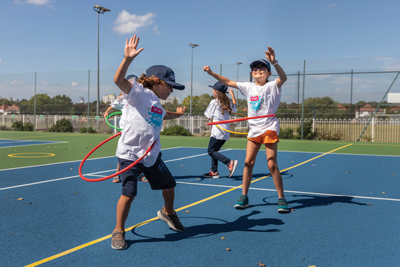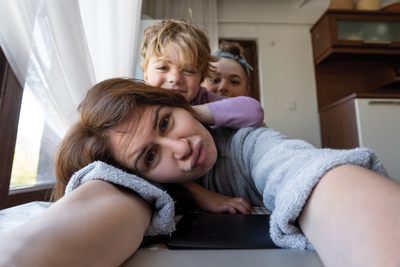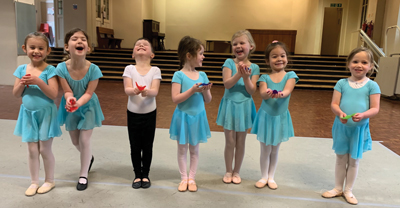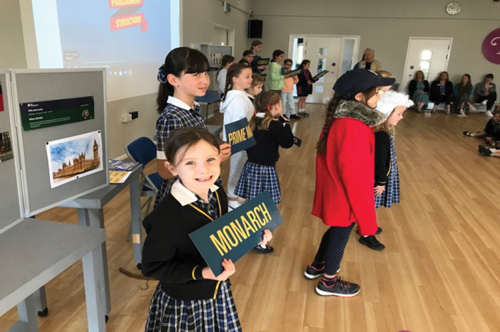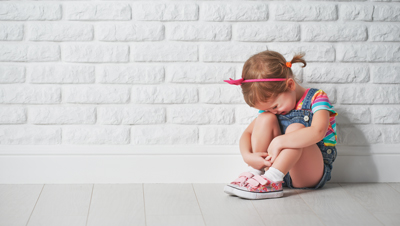
by Helen Villiers and Katie McKenna
psychotherapists and authors of “You’re Not the Problem”
There is no doubt that how we were parented informs and affects how we parent our children. That’s absolutely fine when we grew up in a happy, healthy, ‘good enough’ home, but what about when we grow up in unhealthy, toxic and abusive homes?
The first thing to know is that a lot of people don’t realise they grew up in toxic families, because not only do they think it’s normal, but they also think that if they didn’t like the way their parent treated them it’s because they’re the problem, not the parent. So understanding if you had healthy or toxic parents is the first step.
Signs you had a toxic parent are:
1. You weren’t allowed to say no to them without being shamed or punished.
2. You had to do everything their way because it was the right way.
3. They relied on you too heavily for emotional or practical support (parentification).
4. They use (and still use) guilt to make you do things you don’t want to.
5. You feel scared of them and obliged to do whatever they want –“I don’t have a choice, I have to.”
6. You are either hyper-dependent (people pleaser/codependent) or hyper-independent (don’t let anyone close, prefer to do everything alone, don’t ask for help).
This is not a diagnostic list, but if these sound familiar it might be worth looking up toxic or narcissistic parents.
If you’re aware you have toxic parents, you need to be aware of the common pitfalls that parents fall into when parenting their own children.
1. Taking their child’s no as personal rejection
When we grow up in narcissistic family systems, we inevitably develop a rejection wound, that coupled with the learned understanding that a child shouldn’t say no to their parent, it’s possible that someone could see their child’s rejection of them as a personal affront rather than the child just seeking autonomy and identity. Working on the rejection wound and realising that your child is safe enough to say no to you is an amazing thing, will help you boundary your feelings and stay in your parent role and allow your child to know they are safe to be who they are.
2. Swinging too far the other way
We call this the pendulum swing. When someone is so desperate to protect their child from ever experiencing a moment of what they felt in childhood they do the complete opposite. Unfortunately this can actually have a similar outcome because if a parent who experienced coldness and shaming and ignoring in childhood becomes too involved and hovering and micro managing their child, they can create a dependency in that child, instead of an independency. They also might unintentionally make the child responsible for their feelings by subconsciously letting the child know that mummy or daddy’s happiness depends on their happiness. This in turn can create anxiety and people pleasing in a child.
3. People pleasing your child
So often someone can be so scared of their child having emotions even a touch similar to their own feelings as a child that they will sit in fear of those emotions and try and prevent them at all costs. Especially when there is neurodivergence present and the resulting meltdowns are so hard to cope with. As a result they can end up people pleasing their child in order to prevent being faced with their anger, sadness or disappointment. This isn’t helpful for the child. Children have to learn how to regulate all feelings especially difficult ones, and what they learn through being people pleased out of them is that their emotions can control their parents behaviour (and therefore other people’s too) and/or those emotions aren’t acceptable and need to be hidden to keep their parent happy.
4. Being the parent they needed when they were a child
This is the number one mistake that parents from toxic families make. They become who they needed, essentially re-parenting themselves through their own child, which is not healthy. Your child doesn’t need the parent you needed, they’re not growing up in your environment, they’re growing up in a completely different environment, and are a completely different person. They need the parent they need. Make sure you’re not projecting onto your child a set of feelings and experiences that you had, and they may not be having at all.
When you grow up in a toxic family, there are lots of conditioned beliefs around what’s ‘right’ and ‘wrong’, and it’s important to look at your family rules to understand these and choose what you do or don’t want to pass on consciously.
If you recognise yourself in any of these descriptions, first of all, try not to shame yourself. You didn’t know and it’s not your fault. Instead, it’s time to correct it by learning about it, and learning about yourself so you can be the parent you want to be, and your child needs you to be. Whilst we always suggest therapy is the best way to do this, knowing it’s not always accessible for everyone means that using other resources, such as books, podcasts, social media and any other form of learning will help you grow your knowledge, grieve your childhood, and build a better family life for your child and for you.
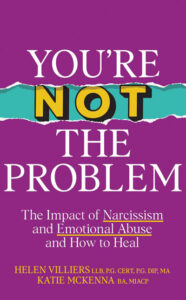 The Sunday Times Bestseller “You’re Not the Problem” will help you recognise the language and behaviours of emotional abuse and narcissism in relationships, the immediate and long-term impact of it, practical strategies for healing and how to avoid repeating these behaviours. Buy “You’re Not The Problem” on Amazon and in all major book stores.
The Sunday Times Bestseller “You’re Not the Problem” will help you recognise the language and behaviours of emotional abuse and narcissism in relationships, the immediate and long-term impact of it, practical strategies for healing and how to avoid repeating these behaviours. Buy “You’re Not The Problem” on Amazon and in all major book stores.

